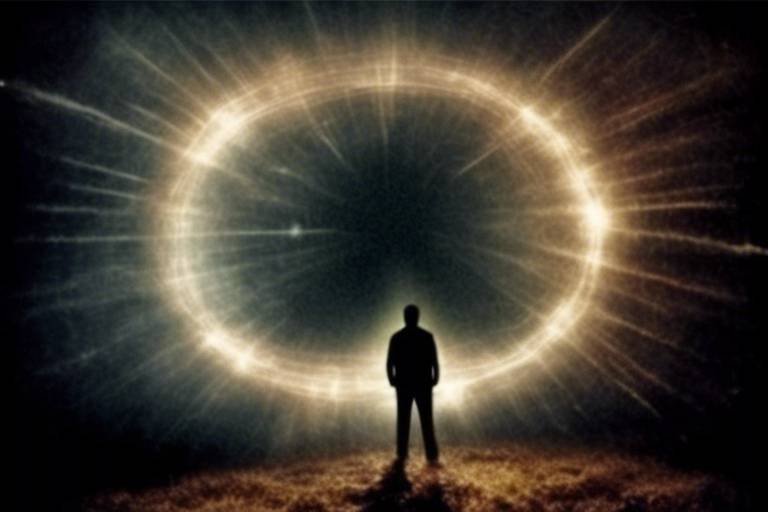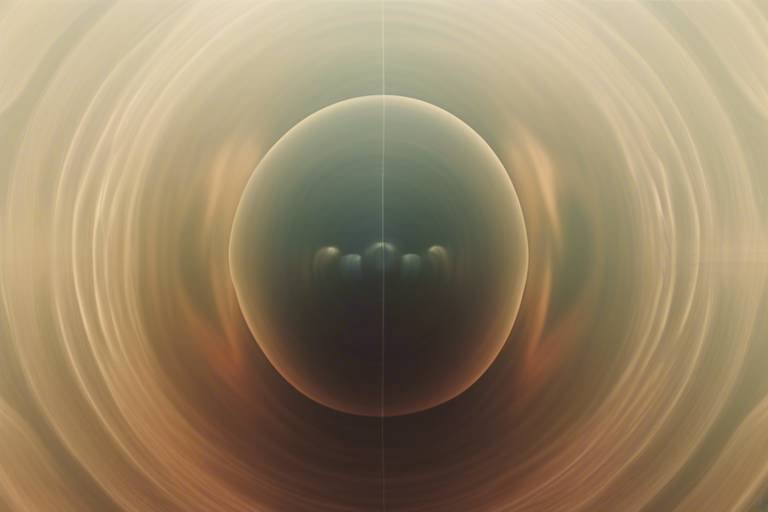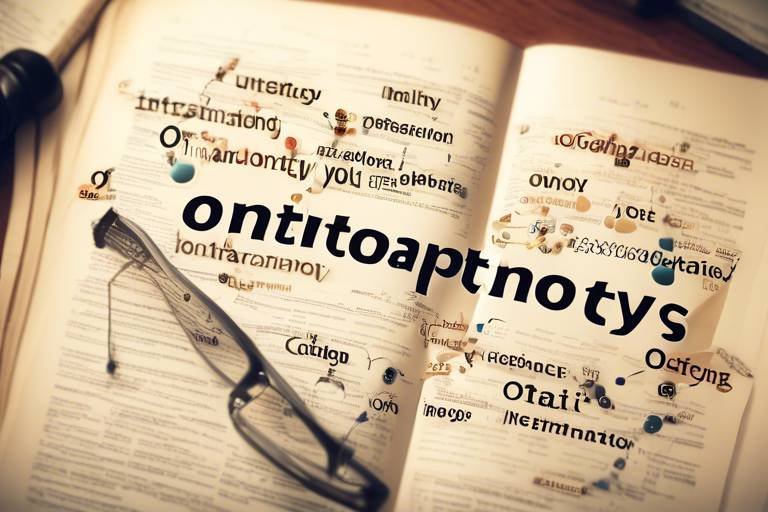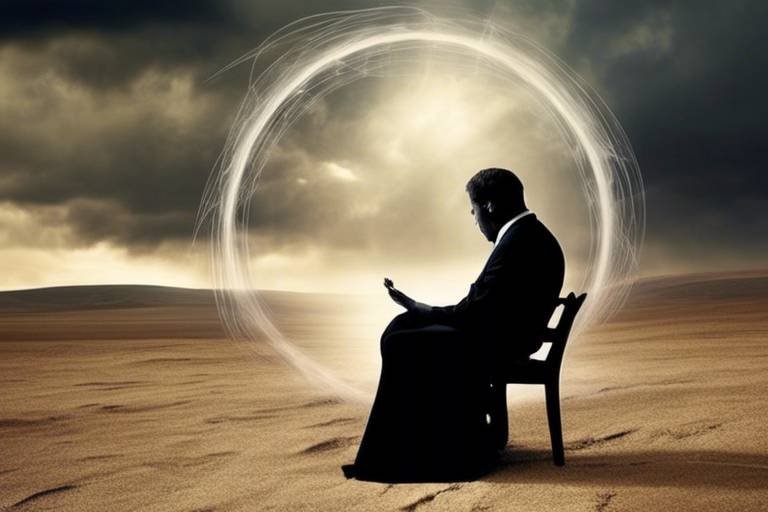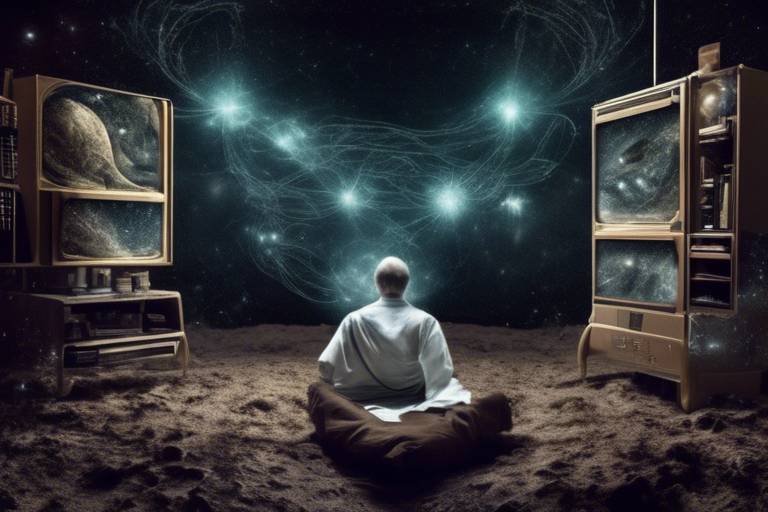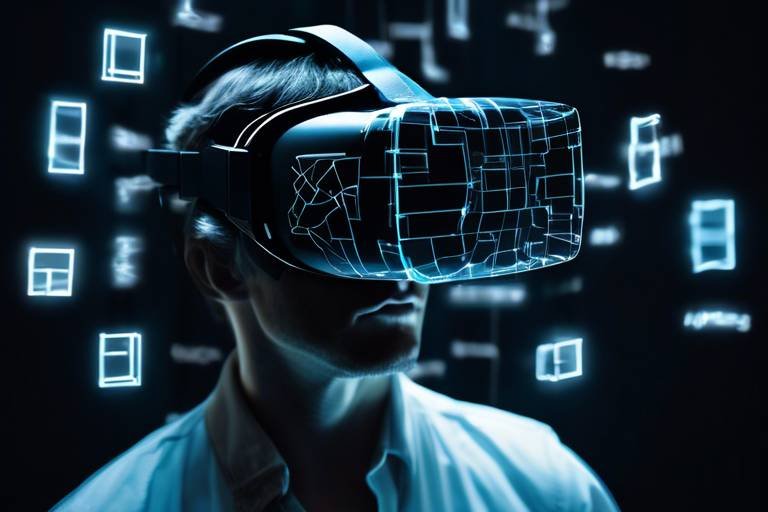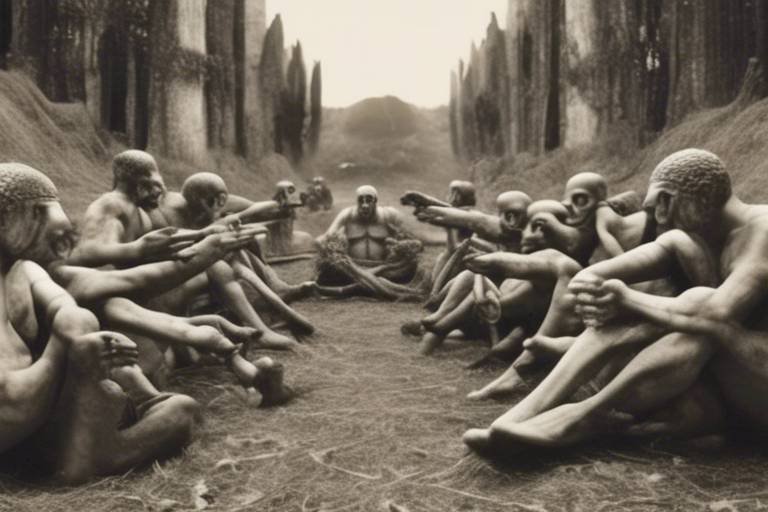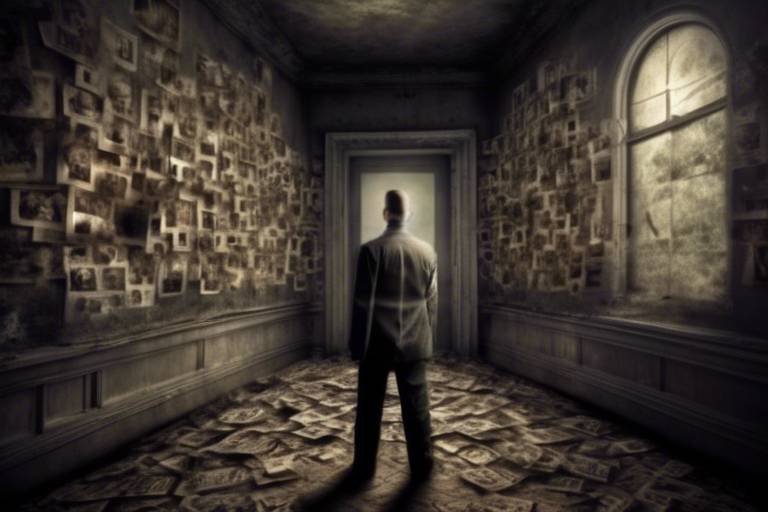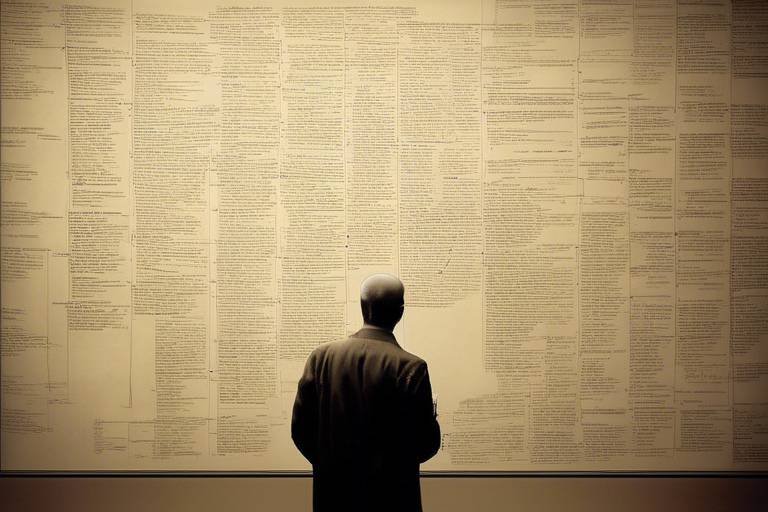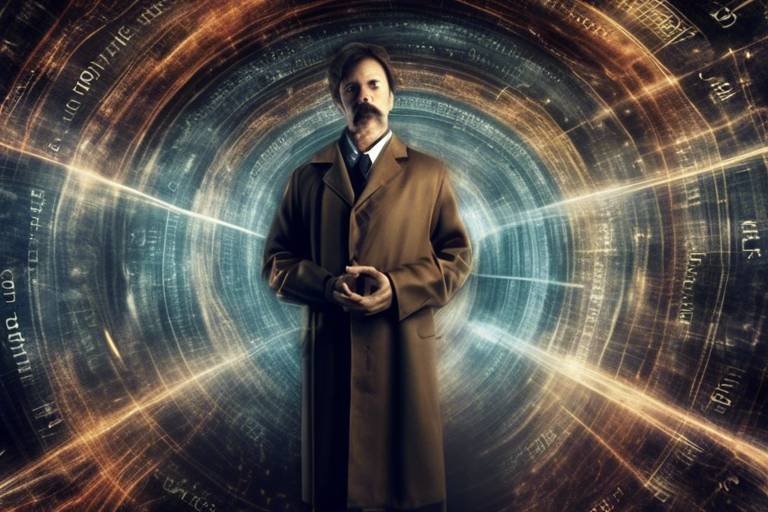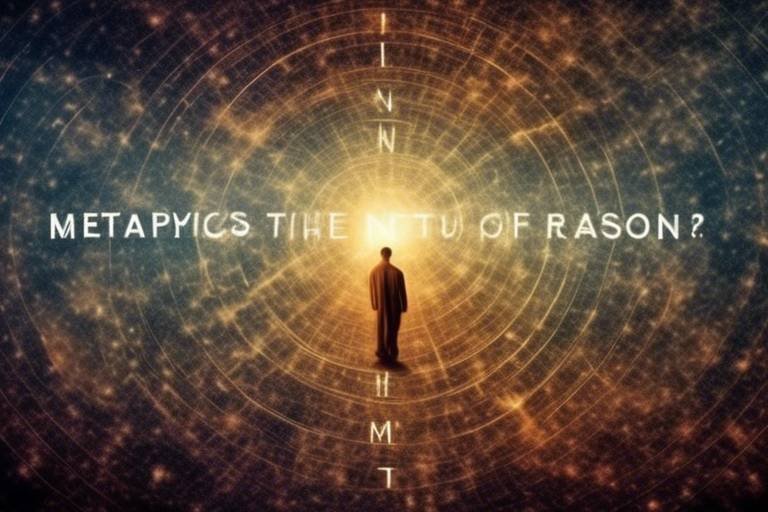Metaphysics & Paranormal Phenomena - Is There a Connection?
Have you ever felt a chill run down your spine while walking through an old, abandoned house, or perhaps experienced a moment where you just *knew* something before it happened? These feelings often lead us to ponder the deeper questions of existence and reality. The intersection of metaphysics and paranormal phenomena offers a fascinating lens through which we can explore the mysteries that lie beyond our physical understanding. In this article, we will delve into the intricate relationship between these two realms, examining how philosophical concepts can illuminate our experiences with phenomena that seem to defy logic and scientific explanation.
At its core, metaphysics seeks to answer the fundamental questions about reality, existence, and the nature of being. It probes into the essence of what it means to be and how we perceive the universe around us. On the other hand, paranormal phenomena encompass a wide array of experiences that challenge our conventional understanding of the world, including ghost sightings, telepathy, and other unexplained occurrences. This article aims to bridge these two fascinating domains, uncovering how metaphysical theories can provide insights into the strange and often bewildering experiences that many people report.
As we embark on this journey, we will explore the foundational concepts of metaphysics, the various types of paranormal experiences, and the philosophical perspectives that have emerged over centuries of debate. We will also consider the scientific community's response to paranormal claims, the methodologies employed in research, and the skepticism that often accompanies such investigations. Finally, we will discuss how metaphysical frameworks can help us interpret these extraordinary experiences, suggesting that perhaps there is more to reality than meets the eye.
So, are you ready to dive deep into the unknown? The connection between metaphysics and paranormal phenomena might just hold the key to unlocking the mysteries of existence itself. Let's explore together!
- What is metaphysics? Metaphysics is a branch of philosophy that explores the nature of reality, existence, and the fundamental nature of being.
- What are paranormal phenomena? Paranormal phenomena refer to experiences that cannot be explained by current scientific understanding, such as ghost sightings, telepathy, and other unexplained occurrences.
- Is there scientific evidence for paranormal phenomena? While many paranormal claims lack empirical support, some researchers continue to investigate these phenomena using various methodologies.
- How can metaphysics help us understand paranormal experiences? Metaphysical theories can provide a framework for interpreting and understanding experiences that challenge our conventional notions of reality.
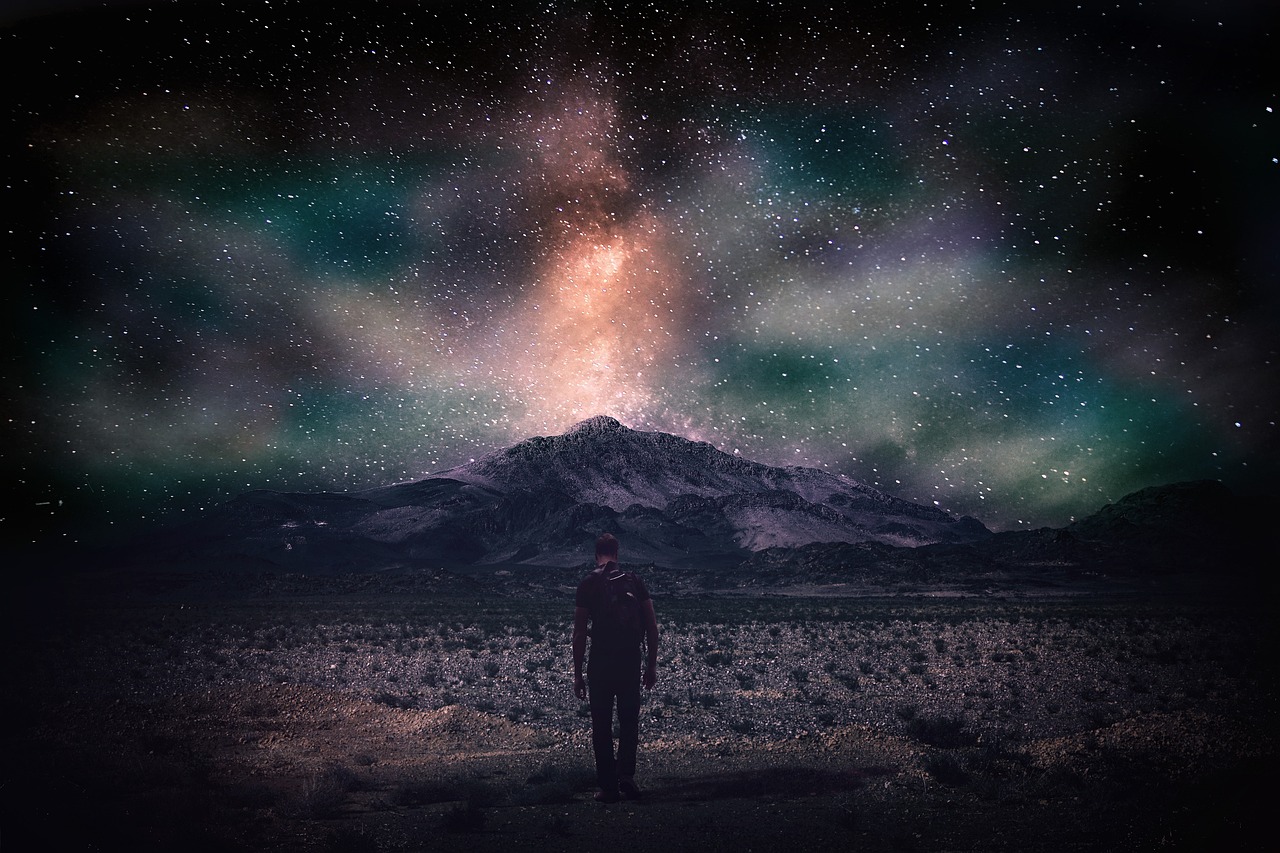
The Foundations of Metaphysics
Metaphysics, at its core, is a branch of philosophy that delves into the fundamental nature of reality. It poses questions that go beyond the physical world, interrogating the very essence of existence itself. What is real? What is the nature of being? These are not just abstract inquiries; they are the bedrock upon which our understanding of the universe is built. Metaphysics invites us to explore concepts such as substance, causality, time, and space, pushing the boundaries of human thought.
Historically, metaphysics has been divided into several key areas that help frame our understanding of reality. These areas include:
- Ontology: This is the study of being and existence. It asks questions like, "What entities exist?" and "What does it mean to exist?"
- Cosmology: This branch examines the origins and structure of the universe. It seeks to understand the universe as a whole, including its laws and how they govern existence.
- Epistemology: While often considered a separate branch, epistemology overlaps with metaphysics in its exploration of knowledge. It investigates the nature and scope of knowledge, asking, "How do we know what we know?"
These foundational concepts not only shape metaphysical inquiry but also serve as a bridge to understanding paranormal phenomena. For instance, when we consider the existence of ghosts or psychic abilities, we are compelled to ask ontological questions about what it means for something to exist outside our conventional understanding of reality. Are these entities merely figments of our imagination, or do they represent a different layer of existence? This intersection between metaphysics and the paranormal is where the magic truly happens.
Moreover, metaphysics encourages us to challenge our perceptions of reality. It asks us to consider that what we see and experience through our senses might not be the complete picture. Just as a magician uses sleight of hand to create illusions, metaphysical inquiry reveals that our understanding of reality might be just as deceptive. This is particularly relevant when we encounter paranormal experiences that defy scientific explanation. They push us to reconsider our assumptions and expand our horizons.
As we delve deeper into the foundations of metaphysics, we begin to see how these philosophical concepts can illuminate the mysteries of the paranormal. They provide a framework for interpreting experiences that seem to exist outside the realm of conventional understanding. In essence, metaphysics not only enriches our comprehension of existence but also opens the door to exploring the unexplained phenomena that tantalize human curiosity.
In conclusion, the foundations of metaphysics are crucial for anyone intrigued by the paranormal. They offer a lens through which we can examine and interpret experiences that challenge our understanding of reality. By engaging with these philosophical concepts, we embark on a journey that encourages us to question, explore, and ultimately expand our perception of the universe.
- What is metaphysics? Metaphysics is a branch of philosophy that explores the fundamental nature of reality, including concepts such as being, existence, and the universe.
- How does metaphysics relate to paranormal phenomena? Metaphysics provides a framework for understanding experiences that defy conventional explanations, allowing for a deeper exploration of existence and reality.
- What are the main areas of metaphysics? The main areas include ontology (the study of being), cosmology (the study of the universe's origins and structure), and epistemology (the study of knowledge).
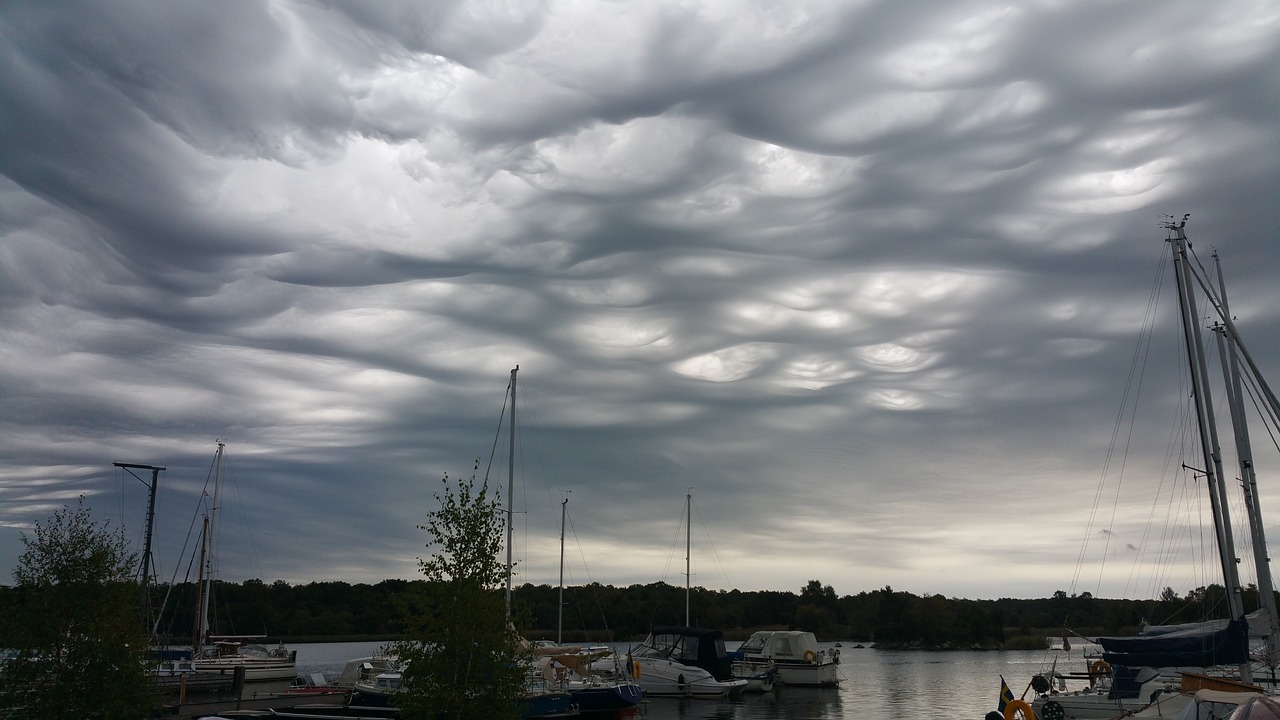
The Nature of Paranormal Phenomena
Paranormal phenomena encompass a wide range of experiences that seem to transcend our understanding of the physical world. These occurrences often leave us scratching our heads, wondering if there's more to reality than meets the eye. From ghostly apparitions to unexplainable sensations, the paranormal invites us to explore the boundaries of human perception and the mysteries of existence. Have you ever felt a chill in the air for no reason? Or perhaps you've experienced a moment where time seemed to stand still? These sensations often fall into the realm of the paranormal, prompting us to question the very fabric of our reality.
At its core, the term "paranormal" refers to events that lie outside the scope of scientific explanation. This includes a variety of experiences that many people claim to have encountered, yet which remain elusive to empirical research. The significance of these phenomena is profound, as they challenge our understanding of life, death, and everything in between. In a world dominated by science and rational thought, the existence of paranormal experiences can feel like a breath of fresh air, offering a glimpse into the unknown.
To better understand the nature of these phenomena, we can categorize them into several key types. Each type not only illustrates the diversity of paranormal experiences but also highlights the cultural and personal significance they hold for individuals across the globe. Here are some common categories:
- Ghosts and Spirits: Often described as the souls of the deceased, ghosts are perhaps the most recognized form of paranormal phenomena. They are frequently reported in haunted locations, with individuals recounting experiences of seeing apparitions or hearing unexplained noises.
- Psychic Abilities: This includes phenomena such as telepathy, clairvoyance, and mediumship. Many believe that some individuals possess the ability to perceive information beyond the normal sensory channels.
- UFOs and Extraterrestrial Encounters: Reports of unidentified flying objects and encounters with beings from other worlds have fascinated humanity for decades, raising questions about life beyond our planet.
- Near-Death Experiences (NDEs): Accounts of individuals who have come close to death often include vivid experiences that challenge conventional understandings of consciousness and existence.
These categories merely scratch the surface of the vast array of paranormal phenomena that exist. Each experience carries with it a story, a personal narrative that shapes the beliefs and understandings of those who encounter them. Whether one views these experiences as mere figments of imagination or genuine interactions with the unknown, they undeniably play a crucial role in the human experience.
As we delve deeper into the nature of paranormal phenomena, we must also consider the cultural contexts that shape our interpretations. Across different societies, beliefs about the paranormal can vary dramatically. For instance, while some cultures embrace the idea of spirits residing among us, others may view such beliefs with skepticism. This interplay between culture and paranormal experiences highlights how our understanding is often colored by societal norms and personal experiences.
In summary, the nature of paranormal phenomena is as complex as it is fascinating. These experiences compel us to question our understanding of reality, pushing us to explore the boundaries of consciousness and existence. As we continue to investigate these occurrences, we may find that the line between the known and the unknown is thinner than we ever imagined.
Q1: What are paranormal phenomena?
A1: Paranormal phenomena refer to experiences that cannot be explained by current scientific understanding, including ghost sightings, psychic abilities, and UFO encounters.
Q2: Are paranormal experiences real?
A2: While many people report paranormal experiences, the scientific community often approaches these claims with skepticism, seeking empirical evidence to support or refute them.
Q3: How do cultural beliefs influence perceptions of the paranormal?
A3: Cultural beliefs play a significant role in shaping how individuals interpret paranormal experiences, with different societies having varying levels of acceptance or skepticism regarding such phenomena.
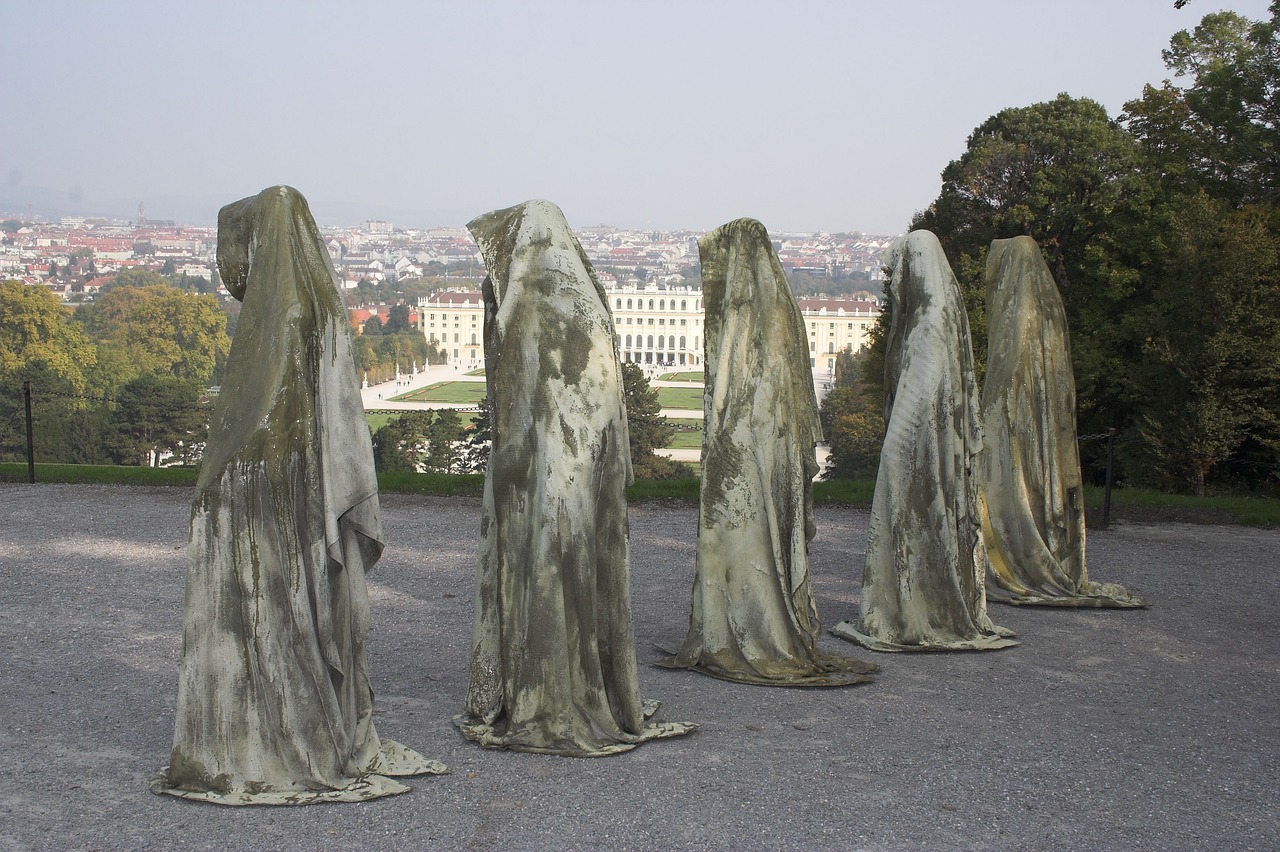
Types of Paranormal Experiences
When we dive into the world of the paranormal, we uncover a fascinating tapestry of experiences that challenge our understanding of reality. From eerie ghost sightings to inexplicable psychic phenomena, the types of paranormal experiences are as varied as they are intriguing. Have you ever felt a chill run down your spine in an empty room, or perhaps sensed that someone was watching you even when you were alone? These feelings often hint at a deeper connection to the unknown.
One of the most commonly reported types of paranormal experiences is the encounter with ghosts and spirits. Stories abound of individuals who have seen apparitions, heard unexplained noises, or felt a presence in a haunted location. These experiences can range from benign encounters, like a friendly spirit trying to communicate, to more sinister interactions that leave individuals feeling frightened and confused. Historical accounts and cultural interpretations of ghosts vary widely, but they often share a common thread: the belief that the spirit of a deceased person can linger in the physical world, seeking closure or connection.
Another captivating area of paranormal phenomena is psychic abilities. This includes a range of extraordinary skills such as clairvoyance, telepathy, and mediumship. Imagine being able to see events happening miles away or communicate with those who have passed on. While skeptics may dismiss these claims, many individuals report profound experiences that suggest a deeper layer of consciousness at play. The implications of these abilities challenge our conventional understanding of the mind and reality itself.
In addition to ghosts and psychic phenomena, there are numerous other experiences that fall under the paranormal umbrella. These can include:
- UFO sightings: Reports of unidentified flying objects have sparked debates about extraterrestrial life and government cover-ups.
- Near-death experiences (NDEs): Many individuals who have come close to death report vivid experiences that often include feelings of peace, seeing a bright light, or encountering deceased loved ones.
- Out-of-body experiences (OBEs): Some people claim to have experienced a sensation of floating outside their physical body, often during moments of extreme stress or trauma.
These experiences not only captivate our imagination but also raise profound questions about the nature of existence and consciousness. Are these encounters mere figments of our imagination, or could they be glimpses into a reality that we are yet to fully understand? As we explore these types of paranormal experiences, we find ourselves at the intersection of science, philosophy, and the metaphysical, each offering a unique perspective on what it means to be human in a universe filled with mysteries.
- What are the most common types of paranormal experiences? Ghost sightings and psychic abilities are among the most frequently reported, along with UFO sightings and near-death experiences.
- Are all paranormal experiences genuine? While many people report sincere encounters, skepticism is common, and experiences can often be subjective.
- How do scientists study paranormal phenomena? Researchers use various methodologies, including surveys, interviews, and controlled experiments, to investigate claims of paranormal activity.
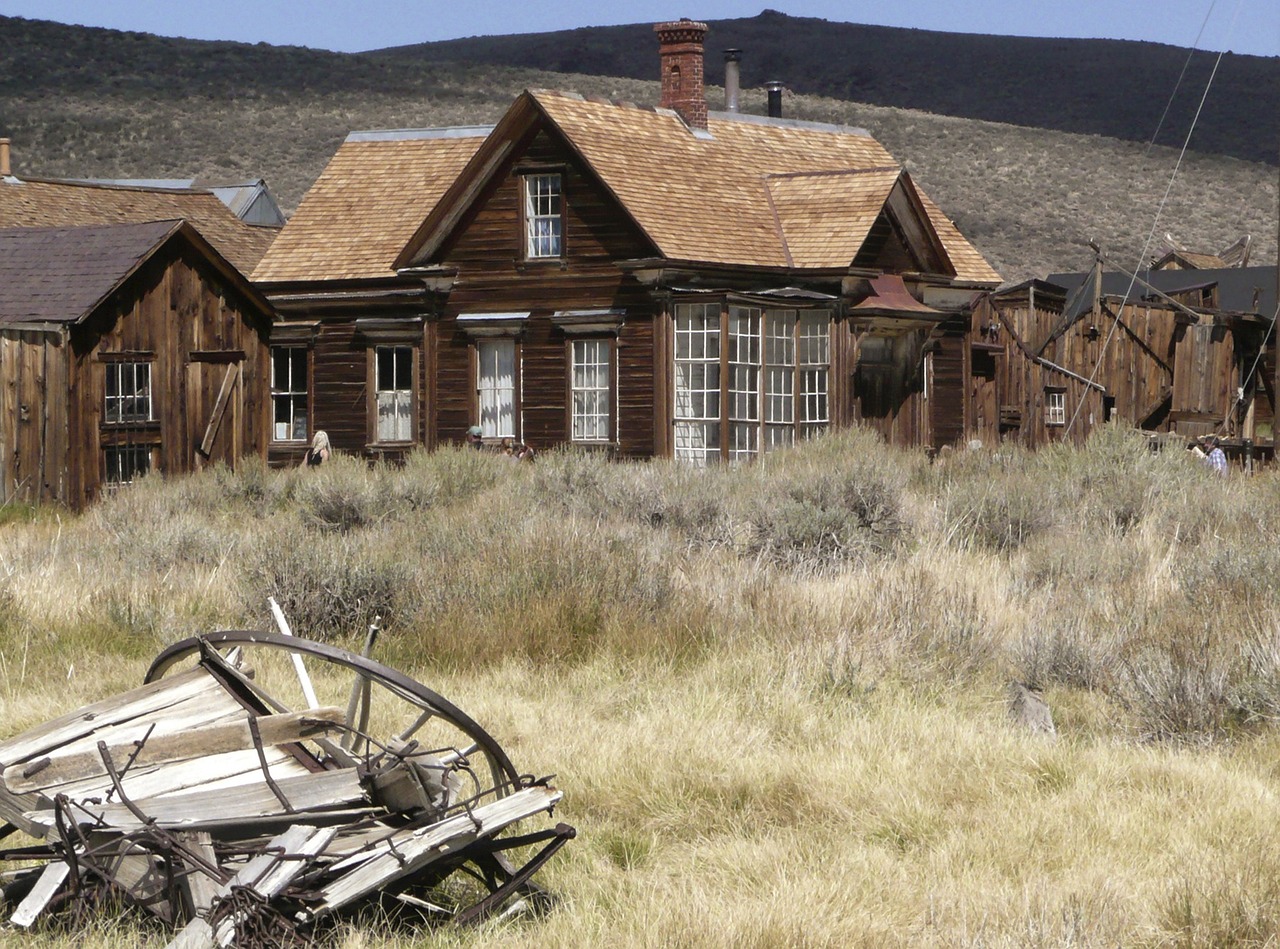
Ghosts and Spirits
When we think about , a myriad of images and stories flood our minds. From the eerie tales told around campfires to the chilling accounts shared in documentaries, the belief in these entities transcends cultures and epochs. Ghosts, often perceived as the souls of the deceased lingering in our world, raise profound questions about existence and the afterlife. Are they merely figments of our imagination, or do they represent something more significant? This inquiry is not just a whimsical pursuit; it touches the very essence of our understanding of life and death.
Historically, many cultures have embraced the idea of spirits and ghosts. For instance, in ancient Egypt, the concept of the afterlife was intricately woven into their daily lives, with elaborate burial practices intended to ensure a smooth transition for the deceased. Similarly, in Japanese folklore, the yurei—spirits of the dead—are believed to roam the earth, often seeking closure or revenge. These cultural interpretations illustrate how the notion of ghosts serves a purpose beyond mere superstition; it acts as a bridge between the living and the dead, providing comfort, fear, and a sense of continuity.
But what about the metaphysical implications? When we consider the existence of ghosts, we are forced to confront the boundaries of our understanding of reality. Are these entities manifestations of energy, remnants of consciousness that refuse to fade away? Some metaphysical theories suggest that ghosts might be a form of energy that transcends the physical realm, challenging our conventional views of life and death. This perspective invites us to ponder whether our consciousness continues to exist beyond our corporeal form. Could the experiences of encountering a ghost be glimpses into a different dimension of reality?
Moreover, the emotional impact of ghostly encounters can be profound. Many individuals report feeling a sense of comfort or connection when experiencing a ghostly presence, often attributing these feelings to a loved one who has passed away. This phenomenon raises interesting questions about the nature of memory and grief. Does the belief in ghosts provide a way for us to process loss, or does it serve a deeper existential purpose? In many ways, the belief in spirits allows us to maintain a connection with those we have lost, offering solace in the face of mortality.
As we explore the implications of ghosts and spirits, it's essential to recognize that these beliefs are not universally accepted. Skeptics argue that ghost sightings can often be attributed to psychological phenomena, environmental factors, or simply the power of suggestion. However, the persistent nature of ghost stories across cultures suggests that there is something inherently human about our fascination with the unknown. Whether we view them as mere folklore or as real entities, ghosts and spirits challenge us to confront our deepest fears and questions about existence.
In conclusion, the exploration of ghosts and spirits is not just about the supernatural; it is a profound inquiry into the nature of reality, consciousness, and what it means to be human. As we delve deeper into these metaphysical questions, we may find that our understanding of life and death is more intertwined than we ever imagined.
- What are ghosts? Ghosts are often considered the spirits or souls of deceased individuals that linger in the physical world.
- Why do people believe in ghosts? Beliefs in ghosts often stem from cultural traditions, personal experiences, and the human desire to understand life after death.
- Are there scientific explanations for ghost sightings? Many scientists attribute ghost sightings to psychological factors, environmental influences, or misinterpretations of natural phenomena.
- Can ghosts communicate with the living? Some individuals claim to have had experiences where they felt a connection with a ghost, often interpreting these as messages or signs from loved ones.
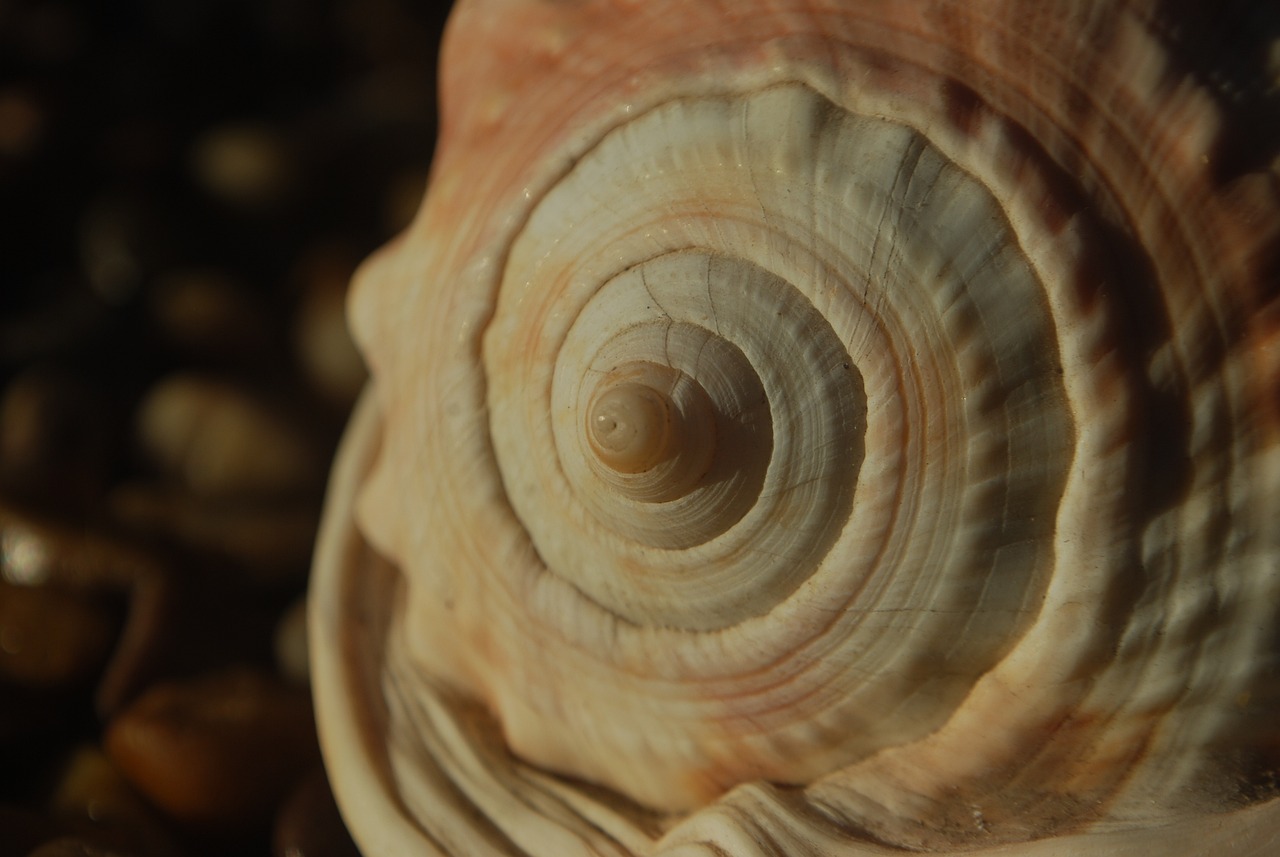
Psychic Abilities
When we think about , what often comes to mind are those captivating images of individuals who seem to possess a sixth sense—people who can see into the future, communicate with the dead, or even read minds. But what are these abilities really? Are they mere figments of our imagination, or is there something more profound at play? To delve deeper, let's consider the various facets of psychic phenomena and how they challenge our traditional understanding of reality.
Psychic abilities, often referred to as extrasensory perception (ESP), encompass a wide range of experiences. Some of the most commonly recognized abilities include:
- Clairvoyance: The ability to gain information about an object, person, location, or event through means other than the known human senses.
- Telepathy: The capacity to transmit thoughts or feelings from one mind to another without using any known human senses.
- Mediumship: The practice of communicating with spirits, often involving a medium who acts as a bridge between the physical and spiritual worlds.
- Precognition: The ability to perceive or predict future events before they occur.
These abilities raise intriguing questions about the nature of consciousness and our understanding of the universe. For instance, if someone can accurately predict future events, what does that say about the linear perception of time? Are we merely living in a pre-scripted reality, or is there room for free will? This is where the intersection of metaphysics and psychic phenomena becomes particularly fascinating.
Philosophically, psychic abilities challenge the conventional notions of reality and perception. They suggest that our understanding of the universe is far more complex than we might have initially believed. Some philosophers argue that if psychic abilities exist, they could imply a deeper, interconnected consciousness that transcends individual experiences. In this view, we are all part of a larger tapestry of existence, where thoughts and energies can interlink in ways that science has yet to fully grasp.
Moreover, the exploration of psychic abilities also touches on the idea of intuitive knowledge. Many people report having gut feelings or instincts that guide their decisions. Is this merely a product of subconscious processing, or could it be a form of psychic awareness? This question invites us to reconsider how we interpret our feelings and insights, potentially leading to a richer understanding of the human experience.
As we continue to explore these phenomena, it's essential to approach them with an open mind while also applying critical thinking. While some individuals claim to possess extraordinary abilities, others remain skeptical, attributing these experiences to psychological factors or coincidence. This ongoing debate reflects the broader struggle between science and metaphysics, as both fields seek to understand the mysteries of existence.
In conclusion, psychic abilities not only captivate our imagination but also challenge our understanding of reality. They invite us to question the very fabric of our existence and encourage a dialogue between the known and the unknown. As we strive to uncover the truth behind these phenomena, we may find that the answers lie at the intersection of science, philosophy, and human experience.
Q: What are psychic abilities?
A: Psychic abilities, often referred to as extrasensory perception (ESP), include phenomena such as clairvoyance, telepathy, and mediumship that suggest a connection beyond the physical senses.
Q: Are psychic abilities real?
A: The existence of psychic abilities is a subject of debate. While many people report experiencing these phenomena, scientific validation remains limited, leading to skepticism within the scientific community.
Q: Can anyone develop psychic abilities?
A: Some believe that everyone has the potential to develop psychic abilities through practice and awareness, while others argue that such abilities are innate and not universally accessible.
Q: How do psychic abilities relate to metaphysics?
A: Psychic abilities challenge our understanding of reality and consciousness, leading to philosophical inquiries about existence, free will, and the interconnectedness of all beings.
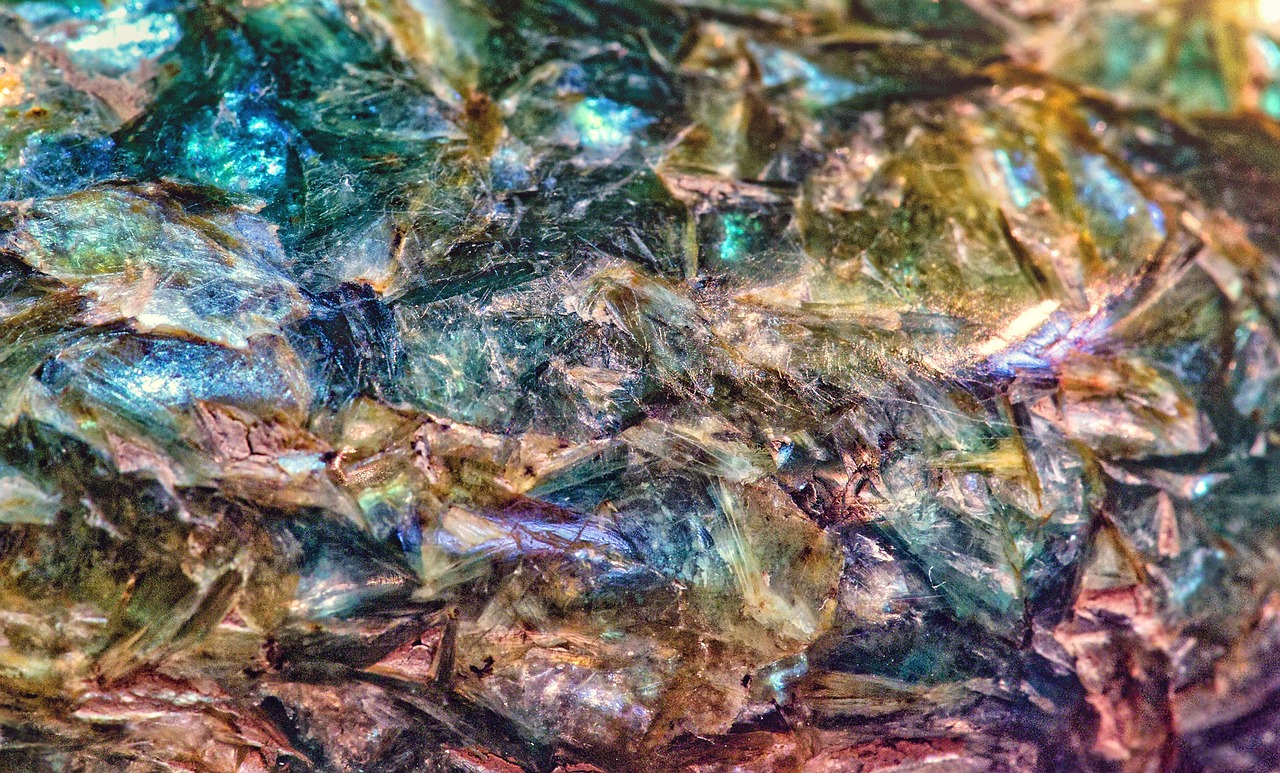
Philosophical Perspectives on the Paranormal
When we dive into the realm of the paranormal, we inevitably stumble upon a myriad of philosophical questions that challenge our understanding of reality. Philosophers have long grappled with the nature of existence, perception, and what lies beyond the physical world. The connection between metaphysics and the paranormal invites us to ponder not just the existence of these phenomena, but also their implications for our understanding of consciousness and the universe.
One of the key philosophical debates centers around the notion of reality. What does it mean for something to be real? For instance, if a ghost is perceived by multiple witnesses, does that make its existence valid? This question leads us to explore the concept of subjective versus objective reality. Subjective reality is shaped by personal experiences and perceptions, while objective reality is independent of individual beliefs. The paranormal often straddles this line, as experiences can be deeply personal yet lack empirical evidence.
Moreover, the philosophy of epistemology, which studies the nature and scope of knowledge, plays a crucial role in assessing paranormal claims. How do we come to know what we know? In the context of paranormal phenomena, traditional methods of knowledge acquisition, such as scientific inquiry, may fall short. This raises intriguing questions about the limitations of human perception and the tools we use to understand our world. For instance, can psychic abilities be classified as a legitimate form of knowledge, or are they merely anecdotal?
Additionally, the metaphysical implications of paranormal phenomena challenge our understanding of time and space. Many paranormal experiences, such as near-death experiences or time slips, suggest that our conventional understanding of these dimensions may be too rigid. Philosophers like Henri Bergson have posited that time is not a fixed linear progression but rather a fluid experience shaped by consciousness. This perspective opens the door to considering how paranormal phenomena might operate outside of our typical temporal frameworks.
Another fascinating aspect is the connection between consciousness and the paranormal. Some philosophers argue that consciousness itself may extend beyond the physical body, leading to the possibility of life after death or the existence of spirits. This idea aligns with certain metaphysical theories that suggest consciousness is a fundamental component of the universe, rather than a mere byproduct of brain activity. If consciousness can exist independently, it raises profound questions about the nature of existence and the potential for ongoing experiences beyond physical life.
In exploring these philosophical perspectives, we find that the paranormal is not merely a collection of strange occurrences but a rich tapestry of questions that can deepen our understanding of reality. By engaging with these ideas, we can bridge the gap between the known and the unknown, the seen and the unseen, inviting a more profound inquiry into the essence of existence itself.
- What is the connection between metaphysics and paranormal phenomena? Metaphysics explores the fundamental nature of reality, while paranormal phenomena challenge our understanding of that reality, suggesting there may be more to existence than what we can empirically observe.
- Can philosophical perspectives provide evidence for paranormal claims? While philosophy can offer frameworks for understanding and interpreting experiences, it does not provide empirical evidence. Instead, it invites deeper inquiry into the nature of those experiences.
- How do different philosophical theories approach the concept of reality? Various philosophical theories, such as realism and idealism, approach reality differently. Realists assert that reality exists independently of our perceptions, while idealists believe that reality is mentally constructed.
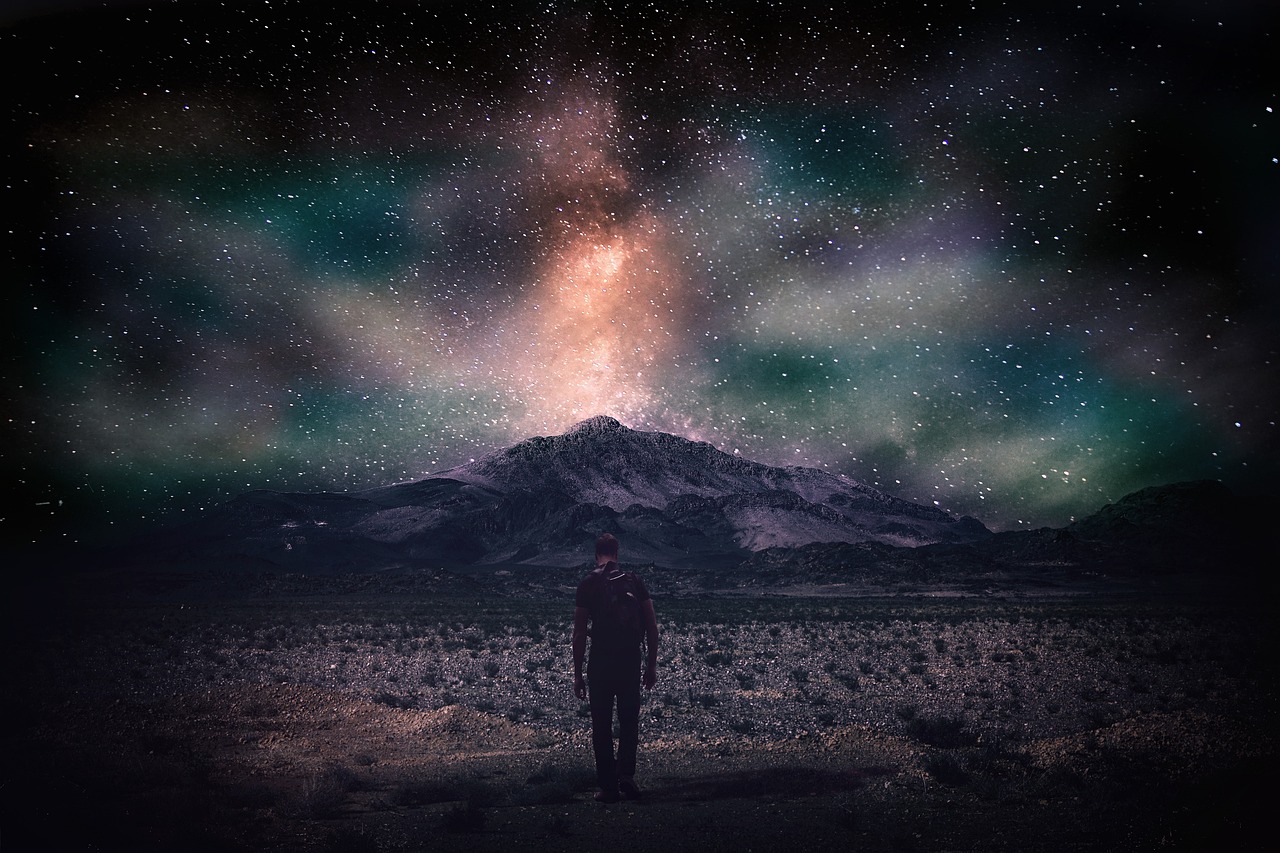
Scientific Views on Paranormal Claims
When it comes to the world of the paranormal, the scientific community often adopts a stance that can be described as skeptical. This skepticism arises from the reliance on empirical evidence and the scientific method, which prioritize observable and measurable phenomena. Paranormal claims, such as ghost sightings or telepathy, frequently lack the rigorous evidence required for scientific validation. This leads to a fascinating tension between personal experiences and scientific inquiry.
One of the main criticisms of paranormal claims is that they often rely on anecdotal evidence. While personal stories can be compelling, they do not meet the stringent standards of scientific proof. For example, if someone claims to have seen a ghost, that experience is subjective and cannot be easily replicated or tested. This raises the question: how can we trust experiences that are so individualized? The scientific method thrives on reproducibility, and without it, paranormal claims often remain on the fringes of scientific discourse.
However, it is essential to recognize that not all scientists dismiss paranormal phenomena outright. Some researchers are intrigued by the unexplained and have dedicated their work to studying these experiences. They employ various research methodologies to investigate claims of the paranormal. These methodologies can include:
- Surveys and Questionnaires: Gathering data from individuals who report paranormal experiences.
- Controlled Experiments: Attempting to replicate paranormal phenomena under controlled conditions to see if they can be observed by others.
- Field Studies: Investigating locations reputed to be haunted or associated with paranormal activity.
Despite the efforts of these researchers, the scientific community remains largely critical of paranormal claims. Many scientists argue that psychological factors, such as suggestion, expectation, and cognitive biases, can explain why people perceive paranormal phenomena. For instance, the phenomenon known as pareidolia—the tendency of humans to see patterns, such as faces, in random stimuli—can lead individuals to interpret ordinary events as supernatural occurrences.
Moreover, the challenge of replicability looms large in paranormal research. Many experiments designed to test paranormal abilities have failed to produce consistent results. This inconsistency leads to a broader skepticism about the validity of paranormal claims. In fact, some studies have shown that when individuals are informed about the scientific explanations for their experiences, their belief in the paranormal often diminishes.
In conclusion, while the scientific community approaches paranormal claims with a critical eye, it does not mean that all avenues of inquiry have been closed off. The dialogue between science and the paranormal continues to evolve, and as our understanding of consciousness and reality expands, who knows what we might discover? Perhaps one day, the realms of science and the paranormal will intersect in ways we can hardly imagine.
- What is the scientific method? The scientific method is a systematic approach to inquiry that involves observation, hypothesis formulation, experimentation, and analysis to draw conclusions.
- Why do scientists often dismiss paranormal claims? Scientists typically require empirical evidence that can be observed and measured, which many paranormal claims lack.
- Can paranormal experiences be studied scientifically? Yes, some researchers use various methodologies to study paranormal claims, though results may vary.
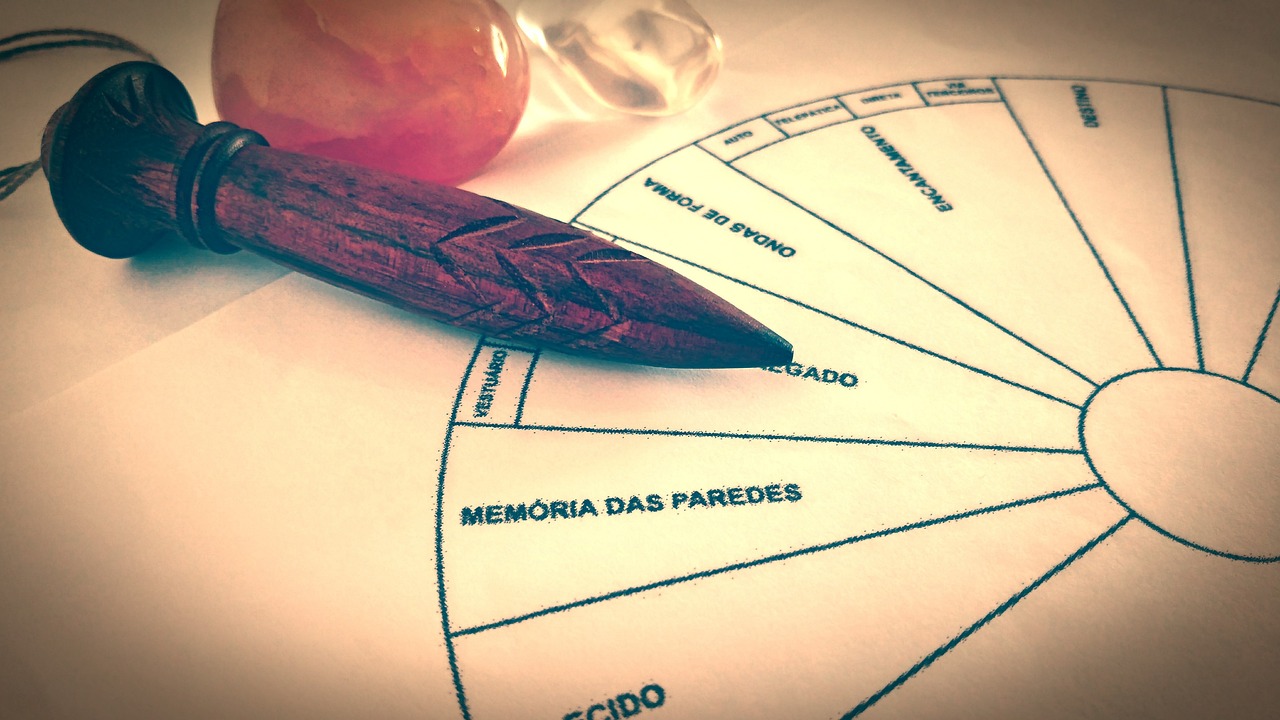
Research Methodologies
When it comes to exploring the enigmatic world of paranormal phenomena, researchers often find themselves at a crossroads. The challenge lies not just in the phenomena themselves but in how we approach studying them. Traditional scientific methods, which rely heavily on empirical evidence and reproducibility, can sometimes fall short when it comes to the elusive nature of paranormal experiences. So, what are the methods that researchers employ to delve into this fascinating realm?
One common approach is the use of **qualitative research methods**. These methods focus on understanding experiences from the perspective of individuals who claim to have encountered paranormal events. Interviews and case studies are prominent in this category, allowing researchers to gather in-depth insights into personal narratives. By analyzing these accounts, researchers can identify common themes and patterns, shedding light on the psychological and cultural aspects of paranormal beliefs.
Another methodology gaining traction is **quantitative research**, which seeks to apply statistical analysis to paranormal claims. This often involves surveys that assess people's beliefs, experiences, and the frequency of reported phenomena. For example, researchers might distribute a questionnaire to a large group, asking them about their experiences with ghosts or psychic abilities. Analyzing the data can reveal interesting correlations, such as demographic factors that might influence belief in the paranormal.
Furthermore, **experimental methodologies** are sometimes employed, albeit with caution. Some researchers set up controlled environments to test specific paranormal claims, such as the effectiveness of psychic mediums or the presence of ghosts in haunted locations. However, this approach faces significant challenges, as the unpredictable nature of paranormal phenomena can lead to inconclusive results. The lack of reproducibility often leads skeptics to dismiss these studies, arguing that the scientific rigor is compromised.
In addition to these methods, researchers often utilize **technology** to aid their investigations. Tools like electromagnetic field (EMF) meters, infrared cameras, and audio recorders are frequently used in ghost hunting. These devices aim to capture evidence that might support claims of paranormal activity. However, the interpretation of such data can be contentious, as skeptics argue that these readings can often be attributed to natural phenomena or equipment malfunctions.
Ultimately, the methodologies used in paranormal research reflect a blend of science and subjective experience. While some researchers strive for a more scientific approach, others embrace the mystery inherent in the paranormal, recognizing that not all experiences can be quantified or explained. This diversity in methodology is crucial, as it allows for a broader understanding of the complex relationship between human perception and the unexplained.
- What are the main challenges in researching paranormal phenomena?
Researchers face difficulties in obtaining reproducible results, as paranormal events are often spontaneous and unpredictable. - How do qualitative and quantitative methods differ in paranormal research?
Qualitative methods focus on personal experiences and narratives, while quantitative methods rely on statistical analysis of survey data. - Can technology effectively capture evidence of paranormal activity?
While technology can aid investigations, the interpretation of data can be subjective and is often debated among researchers. - Are there any ethical considerations in paranormal research?
Yes, researchers must navigate the delicate nature of personal beliefs and experiences, ensuring respect and sensitivity towards participants.

Criticism and Skepticism
The realm of paranormal phenomena is often met with a wave of from the scientific community. This skepticism stems from a fundamental reliance on empirical evidence and reproducibility, which are cornerstones of scientific inquiry. Many skeptics argue that the lack of concrete evidence supporting paranormal claims makes them inherently dubious. They often point to the fact that personal anecdotes, while compelling, do not constitute scientific proof. After all, if a phenomenon cannot be measured, tested, or repeated under controlled conditions, how can it be validated?
Critics also highlight the role of psychological factors in shaping paranormal experiences. Cognitive biases, such as the confirmation bias, can lead individuals to interpret ambiguous events as paranormal. For instance, when someone experiences a sudden chill or a flickering light, they might immediately associate these occurrences with ghostly activity, rather than considering mundane explanations like drafts or faulty wiring. This tendency to jump to conclusions can skew perceptions and fuel the belief in the paranormal.
Moreover, the scientific community emphasizes the importance of rigorous methodologies when investigating such claims. Many paranormal studies lack the necessary controls and randomization, which can lead to misleading results. A common critique is that researchers often focus on sensational cases rather than systematically exploring the breadth of phenomena. This selective attention can create a distorted view of reality, reinforcing the skepticism surrounding paranormal claims.
To illustrate the divide between believers and skeptics, consider the following table that outlines some common arguments from both sides:
| Believers' Arguments | Skeptics' Counterarguments |
|---|---|
| Personal experiences are valid and should be acknowledged. | Personal experiences are subjective and cannot be generalized. |
| Historical accounts provide evidence of paranormal events. | Historical accounts are often anecdotal and lack verifiable evidence. |
| Scientific methods are limited in understanding consciousness. | Scientific methods are essential for verifying claims and establishing facts. |
Despite these criticisms, the allure of the paranormal continues to captivate many. The debate between believers and skeptics is not merely about proving one side right or wrong; it reflects deeper questions about human experience, consciousness, and the nature of reality itself. Engaging with skepticism can be a healthy exercise, prompting us to question our beliefs and seek evidence before drawing conclusions. Ultimately, the conversation surrounding paranormal phenomena invites us to explore the boundaries of what we know and what remains a mystery.
- What is the main argument against paranormal phenomena? Many skeptics argue that there is a lack of scientific evidence to support claims of paranormal activity.
- How do cognitive biases affect our perception of paranormal events? Cognitive biases can lead individuals to interpret normal occurrences as paranormal due to preconceived notions or emotional responses.
- Can scientific methods be applied to study paranormal claims? Yes, but many paranormal studies lack rigorous methodologies, making it difficult to validate findings.

Bridging Metaphysics and the Paranormal
The intriguing relationship between metaphysics and paranormal phenomena opens a fascinating dialogue that invites us to question the very fabric of our reality. At first glance, these two realms may seem disparate; metaphysics often delves into abstract concepts such as existence, time, and space, while paranormal phenomena encompass experiences that defy conventional scientific understanding. However, a closer examination reveals a profound connection that can enrich our comprehension of both fields.
Metaphysics provides a philosophical framework that can help us interpret the mysterious occurrences we often label as paranormal. For instance, when we encounter an unexplained event, such as a ghostly apparition or a moment of telepathic connection, we are confronted with questions that challenge our understanding of reality. Metaphysical theories, particularly those concerning consciousness and the nature of existence, can offer insights into these experiences, suggesting that they may not be as disconnected from our reality as we once thought.
Consider, for example, the concept of non-locality in quantum physics, which posits that particles can be interconnected regardless of distance. This principle can serve as a metaphor for understanding psychic phenomena; just as particles can influence one another across vast distances, could it be that human consciousness also possesses a similar connectivity that allows for telepathy or other psychic experiences? This analogy provides a bridge between the scientific and the metaphysical, suggesting that our understanding of reality is far more complex than we typically acknowledge.
Moreover, the existential questions raised by paranormal experiences can lead us to explore deeper philosophical inquiries. What does it mean to exist? Are our perceptions of reality merely a construct of our minds? By engaging with these questions, we can begin to unravel the intricate tapestry that links metaphysics and the paranormal. Experiences that seem to defy logic may actually provide valuable insights into the nature of consciousness and the universe, prompting us to rethink our definitions of reality.
As we contemplate the implications of these connections, it becomes clear that the study of paranormal phenomena can benefit from a metaphysical perspective. By applying metaphysical theories to our understanding of paranormal occurrences, we can create a more comprehensive framework that encompasses both the seen and the unseen. This approach not only enhances our understanding of the paranormal but also enriches the field of metaphysics itself, as it challenges us to consider new dimensions of existence and consciousness.
Looking ahead, the potential for future research in this area is vast. Scholars and enthusiasts alike can explore how metaphysical concepts might inform our understanding of paranormal experiences, paving the way for new methodologies and interpretations. This intersection of disciplines not only fosters a deeper understanding of both metaphysics and the paranormal but also invites us to remain open to the mysteries that lie beyond the veil of our current knowledge.
- What is the relationship between metaphysics and paranormal phenomena? Metaphysics provides a philosophical framework that helps interpret and understand paranormal experiences, suggesting a deeper connection between the two.
- Can metaphysical theories explain paranormal experiences? Yes, metaphysical theories can offer insights into the nature of consciousness and reality, which may help us understand paranormal occurrences.
- What are some examples of paranormal phenomena? Ghost sightings, telepathy, and clairvoyance are all considered paranormal phenomena that challenge conventional scientific explanations.

Existential Questions
When we delve into the realm of paranormal phenomena, we inevitably stumble upon a series of profound existential questions that challenge our understanding of reality. What does it mean to exist? Are we merely biological machines, or is there something more to our consciousness? These inquiries have haunted humanity for centuries, and the experiences reported in the paranormal realm often serve as a catalyst for deeper reflection.
For instance, consider the phenomenon of near-death experiences (NDEs). Many individuals who have had NDEs report feelings of peace, encounters with deceased loved ones, or even life reviews. Such experiences prompt us to ponder: Is there life after death? If so, what does that imply about our current existence? Are we living in a simulation, or is the universe a vast tapestry woven with threads of consciousness? The answers to these questions are elusive, yet they beckon us to explore the boundaries of our understanding.
Moreover, the intersection of metaphysics and paranormal experiences raises intriguing questions about the nature of consciousness itself. Are our thoughts and emotions merely byproducts of our brain's neural activity, or do they possess an intrinsic quality that transcends physicality? This debate is not merely academic; it has real implications for how we perceive ourselves and our place in the universe. The exploration of psychic phenomena, such as telepathy or precognition, further complicates this discussion. If these abilities exist, what does that say about the limits of human potential?
In contemplating these existential questions, we might also consider the role of cultural beliefs in shaping our understanding of the paranormal. Different societies interpret supernatural occurrences through various lenses, often influenced by their historical context and spiritual beliefs. For example, in some cultures, ghosts are seen as benevolent guides, while in others, they are viewed as malevolent spirits seeking revenge. This cultural variance prompts us to ask: How do our beliefs shape our experiences? Are we, in some sense, co-creators of our reality?
Ultimately, the existential questions raised by paranormal phenomena serve as a bridge between the known and the unknown. They invite us to explore the depths of our consciousness and consider the possibility that there is more to existence than what meets the eye. As we grapple with these questions, we open ourselves to a broader understanding of reality—one that encompasses both the physical and metaphysical realms.
- What is the nature of consciousness? Consciousness remains one of the most profound mysteries. It may transcend physical existence, suggesting a deeper connection to the universe.
- Are paranormal experiences real? Many individuals report genuine experiences, although scientific explanations often remain elusive.
- How do cultural beliefs affect paranormal interpretations? Cultural contexts shape how individuals perceive and interpret supernatural occurrences.
- Can metaphysics provide answers to existential questions? Metaphysics offers frameworks that may help us understand the complexities of existence and consciousness.

Future Directions in Research
As we delve deeper into the captivating realms of metaphysics and the paranormal, the future of research in these fields appears both promising and intriguing. With advancements in technology and a growing acceptance of unconventional inquiries, researchers are poised to explore uncharted territories. One of the most exciting prospects lies in the integration of quantum physics with metaphysical theories. Imagine a world where the bizarre principles of quantum mechanics could provide insights into the nature of consciousness and reality—this is the frontier that researchers are beginning to approach.
Moreover, the use of neuroscience to study paranormal experiences could bridge the gap between the physical and the metaphysical. By employing brain imaging techniques, scientists can investigate how the brain processes experiences that defy explanation. Are these phenomena merely products of our minds, or do they point to something more profound? This intersection between brain science and metaphysical inquiry could yield fascinating results, challenging our understanding of human perception.
Another avenue worth exploring is the cultural perspective on paranormal phenomena. Different cultures have unique interpretations of the supernatural, and understanding these variations can provide valuable insights into the human experience. Research could focus on how cultural beliefs shape perceptions of ghosts, spirits, and psychic abilities. By examining these differences, we may uncover universal truths about our collective consciousness and its connection to the universe.
Furthermore, the development of interdisciplinary approaches is essential for advancing research in both metaphysics and the paranormal. Collaborations between philosophers, scientists, and cultural anthropologists can create a more holistic understanding of these phenomena. For instance, a combined effort could lead to the creation of a comprehensive framework that not only addresses the scientific aspects of paranormal claims but also considers the philosophical implications and cultural narratives surrounding them.
In terms of methodology, researchers should consider employing both qualitative and quantitative methods to study paranormal phenomena. Qualitative research can provide rich, descriptive insights into personal experiences, while quantitative methods can test hypotheses and measure the prevalence of such experiences across different populations. This dual approach can enhance the credibility of findings and foster a more nuanced understanding of the complexities involved.
As we look to the future, it’s crucial to remain open-minded yet critical. While exploring these fascinating connections, researchers must also maintain a rigorous scientific approach. This balance between curiosity and skepticism will be pivotal in legitimizing the study of the paranormal within the broader scientific community.
In conclusion, the future of research in metaphysics and paranormal phenomena is filled with potential. By embracing interdisciplinary collaboration, advancing technology, and maintaining a critical eye, we can uncover the mysteries that lie at the intersection of these two captivating fields. The journey ahead promises to be as enlightening as it is thrilling, challenging our perceptions and expanding our understanding of existence itself.
- What is the relationship between metaphysics and paranormal phenomena?
Metaphysics explores the fundamental nature of reality, while paranormal phenomena challenge our understanding of that reality. Together, they offer a rich field of inquiry into existence and consciousness.
- How can science study paranormal experiences?
Through rigorous methodologies, including empirical research and brain imaging techniques, science can investigate the psychological and physiological aspects of paranormal experiences.
- What role does culture play in paranormal beliefs?
Cultural backgrounds significantly influence how individuals interpret and experience paranormal phenomena, leading to diverse beliefs and practices around the world.
- Are there any credible studies on paranormal phenomena?
Yes, there are various studies that explore paranormal phenomena, though they often face skepticism. Ongoing research aims to enhance credibility through interdisciplinary approaches.
Frequently Asked Questions
- What is metaphysics?
Metaphysics is a branch of philosophy that explores the fundamental nature of reality, including concepts such as being, existence, and the universe. It seeks to answer profound questions about what lies beyond the physical world.
- How are metaphysics and paranormal phenomena connected?
The connection between metaphysics and paranormal phenomena lies in the exploration of experiences that challenge our conventional understanding of reality. Metaphysical theories often provide a framework for interpreting these unexplained events.
- What are some examples of paranormal phenomena?
Paranormal phenomena include ghost sightings, telepathy, clairvoyance, and other experiences that defy scientific explanation. These occurrences often provoke curiosity and intrigue, leading to various interpretations across cultures.
- Are ghosts and spirits real?
The existence of ghosts and spirits is a highly debated topic. While many cultures believe in their presence, scientific evidence remains inconclusive. Personal experiences and historical accounts often shape individual beliefs.
- What do philosophers say about the paranormal?
Philosophers have long debated the implications of paranormal phenomena, questioning the nature of reality and human perception. Some argue that these experiences challenge our understanding of existence, while others remain skeptical.
- How does science view paranormal claims?
The scientific community typically approaches paranormal claims with skepticism, emphasizing empirical research and the need for reproducible evidence. Many scientists argue that without solid evidence, such claims cannot be substantiated.
- What research methods are used in studying the paranormal?
Research methodologies in paranormal studies often include qualitative interviews, surveys, and controlled experiments. However, the effectiveness and credibility of these approaches can vary, leading to ongoing debates within the field.
- What are the criticisms of paranormal research?
Critics of paranormal research often point to the lack of rigorous scientific methodology and the reliance on anecdotal evidence. They argue that many claims can be explained through psychological or environmental factors, rather than supernatural causes.
- What existential questions do paranormal phenomena raise?
Paranormal experiences often prompt deep existential questions about consciousness, reality, and the nature of the universe. These inquiries can lead to a greater understanding of our place in the cosmos and the mysteries that surround us.
- What are the future directions for research in this area?
Future research may focus on interdisciplinary approaches that combine metaphysical theories with scientific inquiry. This could lead to new insights into the connection between consciousness and the paranormal, potentially reshaping our understanding of both fields.

